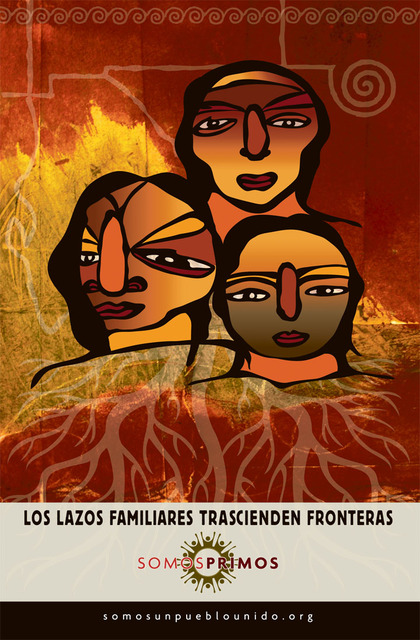Maria Cristina Lopez says a myth hangs over the state that New Mexicans and immigrants from south of the border don’t get along. The media, politicians and school officials spread the nasty stereotype, according to Lopez. Tensions exist between the two communities, she admits, but they see eye-to-eye more often than not.Lopez is a founding member of the statewide immigrants rights group Somos un Pueblo Unido. She says native-born New Mexicans help her all the time. "In every project that we have undertaken, we wouldn’t have been able to do it without the support and the work of the local Nuevo Mexicanos," Lopez says.Somos un Pueblo Unido wants to engage native New Mexicans and Latino immigrants in dialogue. When they talk, Lopez says, both groups come to understand how similar their stories are.Earlier this month, the Somos Primos campaign launched. Several groups and the Office of the State Historian bought in on the message of bringing Nuevo Mexicanos—that is, native-born Hispanic New Mexicans—and immigrants together.The campaign consists of bilingual public service announcements on YouTube and TV public access Channel 27. There are also public service announcements on two Spanish-language radio stations and a bilingual station. The ads examine the division of New Mexico from Mexico and the historic link between the state and its southern neighbor. At a launch party earlier this month, members of both groups were given the chance to discuss their stories and dispel stereotypes. Language was part of the discussion, says Somos un Pueblo Unido Director Marcela Diaz, and some recent Mexican immigrants find it odd that Nuevo Mexicanos don’t speak Spanish. Conversely, some native New Mexicans are irritated by immigrants who don’t speak English.Diaz says both communities encounter the same obstacles, including poverty, lack of affordable housing and poor working conditions. "When we work together to deal with some of those issues, we can actually be quite powerful," Diaz says. "Somos Primos literally translates to ‘We Are Cousins,’ but we like to think of it as ‘We Are Family.’ ”Somos Primos plans to put together a play, a literature panel and a youth-oriented concert. Shared History Before the land that would become New Mexico was ceded to the United States in 1846, it was part of Mexico. State Historian Estevan Rael-Galvez says that means Nuevo Mexicanos share a great deal of common history with Mexicans, and many are blood-related. "Before 1846, they were just two parts of the same whole," Rael-Galvez says.Once New Mexico became a part of the United States, Rael-Galvez says Nuevo Mexicanos and Latino immigrants’ histories diverge. "There are clear differences because of what it means to belong to each nation," Rael-Galvez says. "You have a different social-political structure within each country."Lopez says the differences are undeniable, but the shared history between the two groups should be recognized. "There’s a historical amnesia on both sides of the border," Lopez says. She didn’t learn anything about people in the “territories,” the land ceded to the U.S., while she was growing up in Mexico.Lopez says the American government benefited from not highlighting the shared history because it helped erase ties. "If you don’t tell the history, and you start removing the language of the colonized people, then you ensure the loyalty of the colonized," Lopez says. Common Issues Some of the bills Somos un Pueblo Unido is lobbying for during this year’s legislative session would affect more than just immigrants. One example is House Bill 428, sponsored by Rep. Nathan Cote, which makes it illegal to use racial profiling and other policing tactics. The legislation bans actions taken by police based on a person’s race, sexual orientation or the language they speak. "We know and have documented many instances in which people, immigrants and nonimmigrants, are asked for their green cards just because they’re speaking Spanish," Diaz says. "Given that we have such a high percentage of people of color in the state, we think it’s time that we ban these practices."For 14 years, the group has worked to get immigrant-friendly legislation passed. Somos un Pueblo Unido counts on the support of Nuevo Mexicano legislators to pass its bills.



